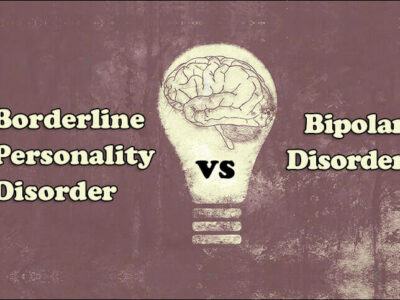Understanding the Struggles and Offering Hope
Obsessive-Compulsive Disorder (OCD) is a mental health condition characterized by intrusive thoughts (obsessions) and repetitive behaviors (compulsions). These thoughts and actions can significantly disrupt daily life and cause immense distress.
The Diagnostic and Statistical Manual of Mental Disorders, 5th Edition (DSM-5-: 300.3), classifies OCD under code 300.3. In the International Classification of Diseases (ICD-10-: F-42), and in ICD-11 Obsessive Compulsive Disorder is categorized under 6B20.
Symptoms of OCD
The hallmark of OCD is the presence of obsessions and compulsions. Obsessions are unwanted, intrusive thoughts, images, or urges that trigger anxiety or distress. Common themes include:
- Fear of contamination by germs or dirt
- Unwanted aggressive or harmful thoughts
- Doubts about locking doors, turning off appliances, or doing something correctly
- Unwanted taboo thoughts (e.g., about sex, religion, or harm)
To relieve this anxiety, individuals with OCD perform compulsive behaviors or rituals. These actions may include:
- Excessive cleaning or handwashing
- Repeated checking of locks, stoves, or appliances
- Counting, tapping, or repeating words silently
- Organizing or arranging objects in a particular way
While these behaviors may temporarily reduce distress, they often become time-consuming, interfere with daily activities, and perpetuate the cycle of OCD.
Causes of OCD
The exact cause of OCD is still unknown, but several factors may contribute to its development:
- Genetics: Studies show that OCD can run in families, suggesting a genetic link.
- Brain Structure and Function: Some research indicates that differences in brain function and structure may contribute to OCD, particularly in the circuits that involve serotonin, a neurotransmitter that regulates mood and behavior.
- Environmental Factors: Trauma, abuse, or significant stress, especially in childhood, may trigger OCD or exacerbate existing symptoms.
- Personality Traits: Individuals who are perfectionists, prone to anxiety, or highly detail-oriented may be more susceptible to OCD.
How OCD Affects Life
OCD can have a profound impact on various aspects of an individual’s life:
- Work and School: Constant obsessions and rituals may make it difficult to focus, leading to reduced productivity and strained professional or academic performance.
- Relationships: The need to perform compulsions can take time away from loved ones, creating tension, frustration, and misunderstanding in personal relationships.
- Daily Functioning: Tasks that are simple for others, such as getting dressed or leaving the house, can become time-consuming and overwhelming for someone with OCD.
Treatment Options for OCD
While OCD can be debilitating, effective treatments are available. These treatments aim to reduce symptoms and help individuals regain control over their lives:
- Cognitive Behavioral Therapy (CBT): Specifically, Exposure and Response Prevention (ERP) is a well-established form of CBT that helps individuals face their obsessions and reduce their compulsions. By gradually exposing themselves to the source of their anxiety without performing rituals, individuals can learn to manage their distress.
- Medication: Selective serotonin reuptake inhibitors (SSRIs), such as fluoxetine or sertraline, are commonly prescribed to help regulate serotonin levels and reduce OCD symptoms.
- Family Therapy: Since OCD can affect the entire family, family-based therapy helps relatives learn how to provide support without enabling the compulsive behaviors, thereby promoting healthier dynamics.
- Support Groups: Sharing experiences with others who understand the condition can provide relief and foster a sense of community.
- Mindfulness and Relaxation Techniques: These approaches can help reduce the anxiety that triggers obsessive thoughts and compulsive behaviors.
Your Life is Precious
OCD is a condition that can feel overwhelming and isolating, both for those who suffer and their loved ones. But it’s important to remember that effective help is available, and treatment can significantly improve quality of life. Don’t hesitate to seek support—whether through therapy, medication, or community resources. By raising awareness, we can foster compassion and understanding for those living with OCD, helping them feel less alone in their journey toward recovery.
Take care of yourself. Your life is precious. Live again.
For more information and support, visit Live Again Mental Wellness at www.liveagainindia.com. Together, we can break the silence and offer hope to those in need.
If you have are experiencing any mental health issue, or know someone, who is suffering. Seek Professional Help and talk to your mental health expert. They can provide valuable guidance to enhance your mental health and overall wellbeing. Your mental health care is our priority. Your life is precious; take care of yourself and family. You are not alone. We are standing by you. Life is beautiful. Live it fully. Say yes to life. Welcome to life.
Live Again India Mental Wellness
L@A
.
ऑब्सेसिव–कम्पल्सिव डिसऑर्डर (OCD): इसे समझें और मदद का हाथ बढ़ाएं
ऑब्सेसिव-कम्पल्सिव डिसऑर्डर (OCD) एक मानसिक स्थिति है, जिसमें व्यक्ति बार-बार परेशान करने वाले विचारों (ऑब्सेशन) और बार-बार दोहराए जाने वाले कार्यों (कम्पल्शन) से जूझता है। ये विचार और व्यवहार व्यक्ति की रोज़मर्रा की ज़िंदगी को मुश्किल बना सकते हैं। OCD को मानसिक विकारों के डायग्नोस्टिक एंड स्टैटिस्टिकल मैनुअल (DSM-5) में 300.3 कोड के तहत और इंटरनेशनल क्लासिफिकेशन ऑफ डिज़ीज़ (ICD-11) में 6B20 कोड के तहत वर्गीकृत किया गया है।
OCD के लक्षण
OCD का मुख्य लक्षण परेशान करने वाले विचार और उन्हें शांत करने के लिए किए जाने वाले दोहराव वाले कार्य होते हैं। कुछ सामान्य ऑब्सेशन (विचार) ये हो सकते हैं:
- गंदगी या कीटाणुओं से संक्रमित होने का डर
- आक्रामक या हानिकारक विचार
- ताले, दरवाजे, गैस, या बिजली के उपकरण बार-बार चेक करना
- सेक्स, धर्म, या नुकसान से जुड़े अनचाहे विचार
इन विचारों से छुटकारा पाने के लिए व्यक्ति बार-बार कुछ क्रियाएं करता है जिन्हें कम्पल्शन कहा जाता है, जैसे:
- बार-बार हाथ धोना या सफाई करना
- ताले या गैस चूल्हे को बार-बार जांचना
- शब्दों को बार-बार दोहराना या गिनती करना
- चीजों को खास तरीके से सजाना या रखना
हालांकि ये क्रियाएं कुछ समय के लिए चिंता कम कर सकती हैं, लेकिन ये अधिक समय लेने वाली होती हैं और व्यक्ति की दैनिक गतिविधियों में बाधा डालती हैं।
OCD के कारण
OCD के कारण पूरी तरह से समझे नहीं जा सके हैं, लेकिन इसके विकास में कुछ कारक भूमिका निभा सकते हैं:
- आनुवंशिकता: OCD परिवारों में हो सकता है, जिससे यह संकेत मिलता है कि यह जेनेटिक हो सकता है।
- मस्तिष्क की संरचना और कार्य: कुछ रिसर्च के अनुसार, मस्तिष्क के उन हिस्सों में बदलाव जो सेरोटोनिन (एक न्यूरोट्रांसमीटर) से जुड़े होते हैं, OCD का कारण हो सकते हैं।
- पर्यावरणीय कारक: बचपन में ट्रॉमा, शारीरिक या मानसिक शोषण, या तनाव OCD को शुरू कर सकते हैं या इसके लक्षणों को बढ़ा सकते हैं।
- व्यक्तित्व के गुण: जो लोग परफेक्शनिस्ट होते हैं या ज़्यादा चिंतित रहते हैं, उनमें OCD होने की संभावना अधिक होती है।
OCD का जीवन पर प्रभाव
OCD व्यक्ति की रोज़मर्रा की जिंदगी के विभिन्न हिस्सों पर गहरा असर डाल सकता है:
- काम और स्कूल: लगातार आने वाले विचार और बार-बार किए जाने वाले काम ध्यान केंद्रित करने में मुश्किल पैदा करते हैं, जिससे कार्यक्षमता और प्रदर्शन पर असर पड़ता है।
- रिश्ते: बार-बार किए जाने वाले व्यवहार और अनुष्ठान, अपनों के साथ समय बिताने में बाधा डालते हैं, जिससे रिश्तों में तनाव और गलतफहमियां हो सकती हैं।
- रोज़मर्रा के कार्य: साधारण कार्य जैसे तैयार होना या घर से बाहर जाना, OCD के साथ जी रहे व्यक्ति के लिए काफी मुश्किल और समय लेने वाले हो सकते हैं।
परिवार के अन्य सदस्यों पर OCD का प्रभाव
OCD से सिर्फ़ पीड़ित व्यक्ति ही नहीं, बल्कि परिवार के अन्य सदस्य भी मानसिक रूप से प्रभावित हो सकते हैं। OCD के साथ जी रहे व्यक्ति की मदद करने की कोशिश में परिवार के सदस्य तनाव, भ्रम और भावनात्मक थकावट महसूस कर सकते हैं। कई बार वे व्यक्ति के अनुष्ठानों में शामिल हो जाते हैं या फिर इससे होने वाली निराशा का सामना करते हैं। इससे धीरे-धीरे गुस्सा, हताशा और यहां तक कि चिंता या अवसाद जैसे मानसिक स्वास्थ्य समस्याएं परिवार के अन्य सदस्यों में भी हो सकती हैं। परिवार के लिए सहायता लेना ज़रूरी है ताकि वे भी मानसिक रूप से स्वस्थ रहें।
OCD का इलाज
OCD का इलाज संभव है, और यह व्यक्ति की जिंदगी में सुधार ला सकता है। मुख्यतः तीन प्रकार के इलाज उपलब्ध हैं:
- संज्ञानात्मक व्यवहार चिकित्सा (CBT): खास तौर पर, एक्सपोजर और रिस्पॉन्स प्रिवेंशन (ERP) नामक चिकित्सा पद्धति OCD के इलाज में बहुत प्रभावी मानी जाती है। इसमें व्यक्ति धीरे-धीरे अपनी चिंताओं का सामना करता है और बिना दोहराव वाले कार्य किए उन्हें नियंत्रित करना सीखता है।
- दवाइयां: सेरोटोनिन लेवल को संतुलित करने के लिए SSRIs (जैसे फ्लूऑक्सेटीन या सर्ट्रालीन) जैसी दवाइयां दी जाती हैं, जो OCD के लक्षणों को कम करने में मदद करती हैं।
- पारिवारिक चिकित्सा: चूंकि OCD पूरे परिवार को प्रभावित करता है, पारिवारिक चिकित्सा से परिवार के सदस्य यह सीख सकते हैं कि OCD के लक्षणों को कैसे समझें और पीड़ित व्यक्ति की मदद कैसे करें, बिना अनुष्ठानों को बढ़ावा दिए।
- समर्थन समूह: ऐसे लोगों से बात करना जो आपके जैसे ही अनुभव से गुजर रहे हैं, राहत और सहारा दे सकता है।
- ध्यान और रिलैक्सेशन तकनीकें: ये तरीके चिंता को कम करने में मदद कर सकते हैं और OCD के विचारों और व्यवहारों को नियंत्रित कर सकते हैं।
आपका जीवन अनमोल है
OCD एक ऐसी स्थिति है जो कभी-कभी असहनीय लग सकती है, लेकिन सही इलाज और सहायता से जीवन को फिर से सामान्य बनाया जा सकता है। अगर आप या आपके परिवार का कोई सदस्य OCD से जूझ रहा है, तो मदद लेने में देर न करें। समय पर इलाज और सही समर्थन से इस स्थिति से उबरा जा सकता है।
खुद का ख्याल रखें। आपका जीवन अनमोल है। फिर से जीएं।
अधिक जानकारी और सहायता के लिए Live Again Mental Wellness पर जाएं: www.liveagainindia.com। साथ मिलकर हम OCD के बारे में जागरूकता बढ़ा सकते हैं और जरूरतमंदों की मदद कर सकते हैं।
स्वस्थ रहें।



